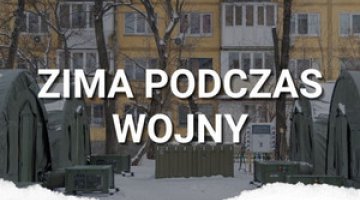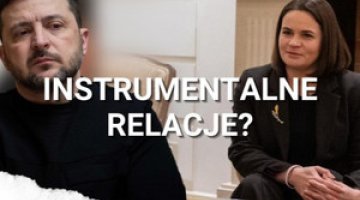The farce of the ‘referendum’ in the Donbas
On 11 May pro-Russian separatists organised a ‘referendum’ on the sovereignty of the Donetsk and Lugansk regions, the results of which (89.07% and 96.2% respectively ‘in favour’) were falsified, and whose voting processes did not meet democratic standards. On 12 May the Donetsk and Lugansk separatists adopted a resolution on the sovereignty of the ‘Donetsk People's Republic’ and the ‘Lugansk Republic People’s’, and started talks about unification and the creation of a so-called entity of Novorossiya (a term from Russian imperial ideology in the late eighteenth century, defining the southern and eastern regions of today's Ukraine as a part of Russia). The Ukrainian central authorities did not take any measures to prevent the separatists holding the vote, and the anti-terrorist operation which has been ongoing for several weeks with army and Interior Ministry forces has once again proven to be very limited.
The destabilisation of eastern Ukraine, which has been continuing for more than two months, and the government’s inept attempts to resolve the situation, have had the effect of deepening social discontent and boosting anti-government sentiments both among the public and the local elites, including the representatives of the regional state administration. Moscow has effectively recognised the results of the separatist referenda; from the Russian point of view, the voting and the results have been successful propaganda exercises which will strengthen separatist activities in other districts of Ukraine.
How the 'referenda' proceeded
The separatists reported that turnout at the ‘referenda’ was 75% in the Donetsk region and 81% in the Lugansk region. Both the turnout and the results should be regarded as preposterous, and the plebiscite itself as incompatible with Ukrainian law, which does not provide for local referendums. The separatists possessed only rudimentary lists of voters (the central authorities denied them access to the register of voters); there were widespread instances of casting votes for other persons, and there were no observers. There was no security for the ballots; they had already been handed out on the streets several days earlier. The separatists failed to create a sufficient number of voting points, and in many places in both districts the 'referendum' did not take place at all.
The separatists reported that 1540 polling stations were opened in the Donetsk region (during the parliamentary elections in 2012, 2444 polling stations operated), but this number seems to have been strongly and repeatedly overstated. They did not provide any numbers for people participating in the vote, but merely gave a significant overestimate of the turnout. Given that 3.35 million people are entitled to vote in the Donetsk region, and 1.8 million in the Lugansk region (based on the Central Electoral Commission of Ukraine’s figures), with such a small number of polling stations it would have been physically impossible for 75% and 81% of those eligible to vote. The polling stations were mainly set up in the cities, but even there their numbers was insufficient. In extreme cases, such as in Mariupol, only four polling stations were opened (there were 218 in the elections in 2012), with 345,000 people eligible to vote. The authorities in Kyiv called the referendum “an illegal act of effrontery”, organised and funded by the Kremlin. Acting president Oleksandr Turchynov surprisingly stated that turnout in the Donetsk region had been below 32%, and in the Lugansk region about 24%; in so doing, he indirectly acknowledged the legitimacy of the process itself. These estimates, however, have not been supported by any research exit polls on the ground, and thus cannot be relied on.
The increase in anti-government sentiment in the Donbas
One success for the separatists is that the local population now mainly blame the situation in the eastern regions on the authorities in Kyiv. In the public perception, the military actions, problems with supplies and transport in the region, the anarchic state of life, the deterioration of security on the streets and roads, and the acts of terror that are the result of separatist activities, are the responsibility of the government in Kyiv and the anti-terrorist operation it is conducting. By exploiting the errors Kyiv has committed in the region, Russian mass propaganda is reinforcing the sense among the local population that the central government is the enemy, and that the separatists are an alternative which offers an opportunity for positive change. The effectiveness of the separatists is also bolstered by the lack of a well thought-out campaign by Kyiv which would clarify the objectives of the military operation.
Dissatisfaction with the policy of the central government has also been demonstrated by the local power and business elites. The Party of Regions and the Communist Party of Ukraine, which still retain influence in the Donbas, have demanded the immediate termination of the anti-terrorist operation and the start of negotiations with the separatists. The oligarch Rinat Akhmetov made a similar statement through his press service; on 11 May he called for the cessation of hostilities and began forming patrols in Mariupol made up of employees belonging to his Metinvest holding. In turn Serhiy Taruta, the governor of the Donetsk region, called on the authorities in Kyiv to call off the military operations and hold a nationwide referendum on devolution on 15 June, the same day as a potential second round of the presidential elections could be held.
The ineffectiveness of the anti-terrorist operation
While continuing the anti-terrorist operation in eastern Ukraine, the authorities in Kyiv decided not to use force to prevent or hamper the conduct of the 'referenda'. The local population’s increasing lack of acceptance for the continuation of military operations against the separatists contributed to this decision. The unsuccessful operation in Mariupol carried out on 9 May by the Interior Ministry and army forces, during which a number of bystanders were killed as a result of a chaotic firefight, had a decisive influence on the rise in negative public sentiment. Consequently, the government’s security forces feared an increase in civilian casualties, and so focused their activity on blocking main roads in order to limit the militants’ freedom of movement in the region. The Security Service of Ukraine (SBU) detained several people carrying referendum ballots; there were also sporadic exchanges of fire around the television relay in Sloviansk. The lack of coordination between the ministries of power was also revealed, as reflected by a chance clash with separatists during which greater losses were suffered by the government forces.
The government has announced that the anti-terrorist operations will continue. However, we should not anticipate any large-scale use of force to regain control of the regional capitals of Donetsk and Lugansk. The authorities in Kyiv expect that the duration and severity of anti-terrorist operations, which are causing difficulties in the functioning of government offices, educational institutions, municipal services and trade, will bring about a gradual decline in support for militant activities within the local population, an assumption which was confirmed in a speech given by the head of the SBU Oleksandr Nalyvaichenko. Given the state of public sentiment, however, this should be considered a counterproductive approach.
The separatists’ activities after the referenda
On 12 May, the separatists proclaimed the sovereignty of the Donetsk People's Republic (DRL) and the Lugansk People’s Republic (LRL). The former has asked Russia to absorb it into its composition. The self-styled commander of the ‘DRL’s armed forces’ Igor Strelkov (a.k.a. Igor Girkin, an officer of the FSB spetsnaz) appealed to Moscow to provide military assistance to the republic, and announced the launch of a ‘counterterrorism operation’ against the government forces. The separatists also announced an active boycott of the presidential elections on 25 May. This is in contrast to their earlier declarations that they would not obstruct the vote, and that the referendum itself was only intended to demonstrate that the region “wants changes”.
Everything indicates that there are different, competing groups among the separatists, which are difficult to identify. This may be indicated by their different statements on the future of the region. The fact that certain separatist groups have harshened their rhetoric since the ‘referendum’ may indicate that the group directly coordinated by Moscow is trying to take full control of the situation in the region, and marginalise the other groups. It seems that the main conflict is between the ‘Strelkov group’ and the separatists being paid by Akhmetov.
Russia’s reaction
Moscow has de facto recognised the results of the separatist referenda. The Kremlin’s press service reported on 12 May that Moscow respects the choices of the population of Donetsk and Lugansk regions as expressed in the referenda. The Russian Foreign Minister also called on the EU to respect the results of the vote and consider it as an expression of the will of the inhabitants of the eastern regions of Ukraine. It must be considered highly likely that despite the ‘recommendation’ of Vladimir Putin, who called publicly for the postponement of the referendum, that in fact it was held with the Kremlin’s cooperation. The apparent divergence of positions between the Kremlin and the separatists will be used to confirm the thesis Russia has promoted that the separatists are an independent force, and will be used as an argument for the need to include them in talks on resolving the crisis and the political future of Ukraine. Russia has made it clear that Kyiv should undertake dialogue with the separatists as a result of the referenda. Moscow would also like the talks to be conducted under the auspices of the OSCE (as Vladimir Putin stated during a conversation with Didier Burkhalter on 13 May), and that Russia should be given guarantees that a constitutional solution aiming at a confederation of regions will be accepted. In talks in Moscow on 13 May with Vygaudas Usackas, an EU representative, the Russian deputy foreign minister Grigory Karasin explicitly spelt out Russia’s expectations: Moscow hopes that, in accordance with the provisions of the Geneva agreement and the ‘road map’ provided by Didier Burkhalter, its partners from the EU and the US will use their influence on the present authorities in Kyiv to discuss the issues of the constitutional system and respect for the rights of the regions in the near future, and certainly before the elections scheduled for 25 May.
Forecast
In the immediate future, we should expect the separatists to take measures to increase control over the Donbas, including the occupation of further buildings, ousting the institutional presence of the Ukrainian state, the intimidation of political opponents, and blackmailing officials and officers of the institutions of force. The authorities in Kyiv are unable to stabilise the Donbas, and have mostly placed their hopes on diplomatic activities and aid from the West.
Kyiv’s methods of conducting its anti-terrorist operations, being limited to blockading cities dominated by militant groups, will not expand to attempts to retake control of the regional capitals (Donetsk, Lugansk). This passivity is primarily due to fear of increasing the number of civilian casualties. Given the current state of public sentiment, we should not expect that the continuation of limited operations against the separatists will lead to increased support for Kyiv’s actions.
Further developments will depend on the attitude of the Kremlin. The Russian side will initiate further diversionary activities, including in the south of Ukraine. Over the next two weeks, Russia will use the “success of the referenda” as an argument to open a dialogue between the authorities in Kyiv and the DRL & LRL, and to start political changes in Ukraine. If Kyiv does not hold talks with the separatists, or if these talks follow a different track from Russia’s assumptions, Moscow may exploit the separatist activity to prevent the presidential elections on 25 May from being conducted in the eastern districts, which it will use as an argument to say it cannot recognise the final results. Nor can we rule out the possibility that if the existing pressure on Kyiv proves ineffective, Moscow may de facto or even formally recognise the sovereignty of the DRL & LRL as a phase in the creation of a federation of south-eastern Ukraine, the so-called Novorossiya.





